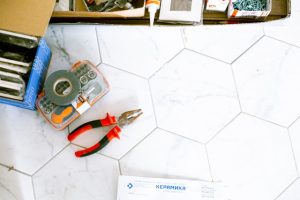 After months of being stuck at home due to the coronavirus pandemic, many homeowners are tackling those pesky home improvement projects that they’ve been putting off indefinitely. Before you embark on a home improvement, renovation, or restoration project, it’s important to know the basics of historic home renovation safety. Fortunately, that’s what we specialize in here at Clean Environmental Group! Keep reading to learn what you need to know about air quality and contaminants before starting an Atlanta home renovation project.
After months of being stuck at home due to the coronavirus pandemic, many homeowners are tackling those pesky home improvement projects that they’ve been putting off indefinitely. Before you embark on a home improvement, renovation, or restoration project, it’s important to know the basics of historic home renovation safety. Fortunately, that’s what we specialize in here at Clean Environmental Group! Keep reading to learn what you need to know about air quality and contaminants before starting an Atlanta home renovation project.
Renovation Safety for Historic Homes
Know what you’re getting into.
Many of the historic homes in Atlanta contain hazardous materials that require professional remediation services. While the lure of DIY home repair is tempting during this time, it’s important to make sure you know what you’re dealing with before you start in order to avoid exposing yourself or your family to harmful contaminants. For example:
- If your home was built between approximately 1930 and 1950, it may have asbestos insulation.
- Homes built before 1977 may have paint or patching compounds that contain asbestos.
- Structures built prior to 1978 often contain lead paint, which can have seriously detrimental effects on humans, especially children. According to the Mayo Clinic, lead poisoning can cause seizures, hearing loss, learning disabilities, and more.
Follow safety guidelines.
If you believe your home may contain lead, asbestos, or other dangerous materials, give us a call at 678-807-7900. There are specific safety and containment measures that must be taken to prevent exposure, and your safest bet is to leave these types of remediation to the professionals.
Even if your home does not contain these hazardous materials, it’s still important to practice appropriate safety when dealing with home renovation materials and tools, whether you’re cutting, sanding, staining, gluing, or anything else.
Provide proper ventilation.
Appropriate ventilation is one of the most important aspects of home renovation safety, especially if you’re applying paint, sealants, glues, etc. Create airflow by opening windows and doors. You can even use box fans to help circulate air.
Ventilation is also important if your home has any water damage, moisture, or humidity issues. Remember that mold can have severe negative impacts on your health, and can often grow and spread silently, without you realizing how bad the problem is. If you suspect that you have a mold problem, we can help with Atlanta mold removal and remediation services.
Store and dispose of chemicals responsibly.
Paints, glues, sealants, and other construction materials can contain strong chemicals that may be flammable and need to be stored according to the manufacturer’s directions to avoid accidents. These renovation materials can also cause damage to the environment if not properly disposed of, so do not place them in with your regular garbage. Instead, learn how to dispose of them through Atlanta’s household hazardous waste disposal program.
Don’t leave your family’s health and safety to chance; contact Clean Environmental Group for a free estimate on our lead abatement and asbestos abatement services.
